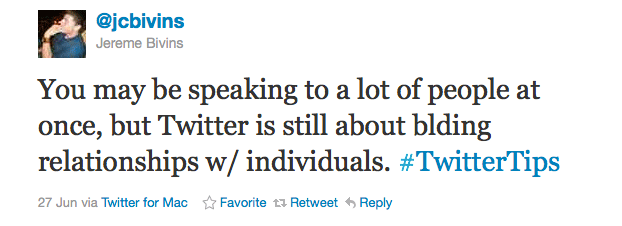AIDS.gov Surpasses 100,000 Twitter Followers - What Does It Really Mean?
Topics

The last month and a half has been a busy time for the HIV community. We commemorated 30 years since the first reported cases of AIDS on June 5, promoted National HIV Testing Day on June 27, and recognized the one-year anniversary of the release of the National HIV/AIDS Strategy. This is a milestone that is less about HIV.gov and more about the power of new media. We sent our first tweet three years ago this month from the International AIDS Conference in Mexico City. Since then, we have sent more than 2,200 tweets about HIV news, the federal government, and using social media. We have seen Twitter grow to be the powerful tool that it is today.
Twitter By the Numbers
One of our favorite sources for all things Twitter is the Pew Research Center's Internet & American Life ProjectExit Disclaimer. They recently published their Twitter Update for 2011Exit Disclaimer report, which had some interesting findings around who is using Twitter. In particular, African Americans and Latinos continue to have higher rates of Twitter use than whites. And Twitter usage among internet users ages 25-34 has doubled since late 2010 (from 9% to 19%). This corresponds with communities most impacted by HIV, and the communities that the National HIV/AIDS Strategy tells us are disproportionately represented in the HIV epidemic.
100,000 or 1
Since our first tweet, we have learned with you and from you provided 20 tips for non-profits using Twitter. One in particular resonated with us, particularly as we reflect on what 100,000 followers means to us at HIV.gov.

Yes, 100,000 is a lot of people, and we're pleased to be able to reach so many people on a daily basis. But it's not about the numbers. It's about the individuals behind the tweets. Thank you for your support, on Twitter, Facebook, this blog - and most importantly through the work that many of you do for all of us who are impacted by HIV.